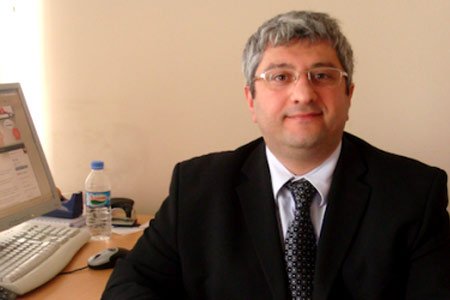“1915” by Prof. Ihsan Yilmaz (2)

Date posted: April 26, 2013
İHSAN YILMAZ
Retrospectively using the word “genocide” to describe what happened to Armenian Ottoman citizens in 1915 complicates the matter further and does not help Turks in facing their country’s history. A second major hurdle is the insistence in limiting the issue to legal discussions.
The issue is much more complicated and, rather than thinking in terms of legal ramifications, we must focus on historical, humanitarian, political and social aspects of the issue. Third, foreign powers such as Russia, the British Empire and France were negatively and abusively influential in the emergence of the Armenian question, and their insistence on interference with the matter makes Turks understandably more defensive. Saying all this does not mean that Turks, especially practicing Muslim Turks such as myself, must not revisit their history and must not disown the mistakes of the secular nationalist Young Turks.
I think what happened in 1915 must be left to the civilian public sphere, where academics, historians, intellectuals and journalists from all areas can be engaged in civilized discussion. There must be no preconditions or requirements, such as accepting the term genocide. What matters is to know and come to terms with what really happened. There will, of course, be a variety of opinions, and we cannot compel people to accept only one of these views. But free debate will help both sides to empathically understand each other’s position. When we deal with states, legal terms, etc., it makes people nervous. If we can open up a debate, the public will be more informed about what really happened, not only in 1915 but also before and after. At the moment, sides are busy cherry-picking points that will prove their position.
Especially Armenians, but also Kurds and Turks, must empathically try to understand what happened during the 1800s and in and after 1917. Kurds and Turks must try to empathically understand what happened during 1915-1916. We must be self-critical, not anachronistic and not try to put the blame on the other side. Kurds and Turks must accept that, whatever brutality the Armenian gangs committed against their ancestors, this could not, for instance, justify the forceful deportation of Western Anatolian Armenians who were not near the war zone. We must also accept that the lack of all sorts of precautions, ranging from security to providing food to forcing Armenians to go to Syria on foot, are not just neutral or natural results of war conditions. We must also never downplay some of the Kurds’ attacks on these innocent civilians. We must never forget who benefited from the goods, monies and properties left by the Armenians who had only 24 hours to leave.
It is not human to just say that the Armenian gangs started it first, that some Armenians revolted and that some massacred Muslims. I am also equally aware of the threats the Ottoman state faced and the Armenian policies of the Russian, British and French governments. Yet a state is a state bound by laws. Gangs are not teachers of the state. Even during the time of World War I, thousands of innocent lives could have been saved, but the secularist nationalist Young Turks did not prefer to do so.
When Prime Minister Recep Tayyip Erdoğan documented and apologized for the Young Turks (who were called Kemalists in the republican era) who brutally massacred and chemically gassed thousands of innocent civilians — children, women, the elderly — in Dersim during peace time in 1938, practicing Muslims did not try to defend the Young Turks. They did not say that it was impossible that our “noble” nation could ever commit such atrocities. Let me remind them of a Nasreddin Hodja quip: You believe when I say that the pot gave birth but do not believe when I say it is dead. We practicing Muslims believe what the secularist nationalist Young Turks could do to our Muslim “non-enemies,” but we do not believe it when it is said that the Young Turks possibly did things during wartime to the Armenians, who, as the deportation decision proves, were obviously seen as an existential threat.
“1915” by Prof. Ihsan Yilmaz (1)
Source: Today’s Zaman, 26 April 2013
Tags: Armenian issue |
























